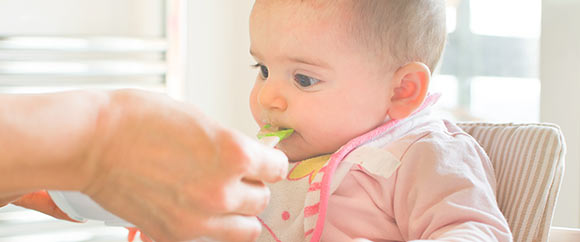| |
 |
Hello [*data('91.salutation')|html*],
In this week 22 update, we give you some hints on knowing when to start weaning, and recommend a bit of super-mum training. |
| |
|
 |
| |
 |
 |
| |
Week 22 News
After about 6 months (not far off now!), it's possible to start weaning, which means adding solid foods to baby's diet. To know if your baby's ready for this momentous stage, look for these signs - showing an interest in your food, good hand-mouth coordination and being able to sit with their head steady. |
| |
|
| |
|
 |
| |
 |
|
|
The Expert View
Going on a baby first aid course is a great idea. It only takes a few hours and you'll learn what to do in a range of emergencies. Knowing how to help a choking baby is especially important with solid foods on the horizon. Ask your health visitor for local courses. |
| |
| |
|
| |
Need to know
Moving your little one into their own room at night for the first time is always a tricky step. Put an item of your clothing in the cot, so that your baby feels reassured by your scent in unfamiliar surroundings |
| |
| |
|
|
 |
| |
| |
 |
|
|
Tip: Sleepless?
If you're worried that you or your baby aren't getting enough sleep, talk to your health visitor or GP. They can help. |
| |
| |
| |
| |
|
|
|
 |
| |
|
|